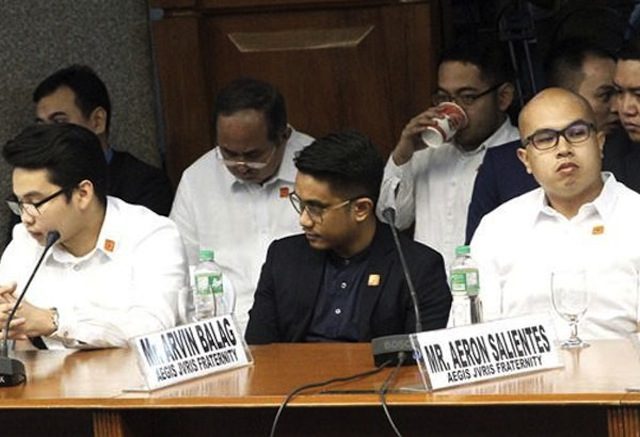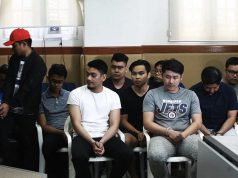
ANILA – (UPDATE 7:40 PM) Aegis Juris fraternity leader Arvin Balag has challenged in the Supreme Court his detention – for contempt – by the Senate, saying the ongoing inquiry into the fatal hazing of law student Horacio Castillo III is not in aid of legislation but “prosecution.”
Through lawyers he filed Tuesday a petition for certiorari and application for temporary restraining order, questioning the order of senators to detain him in Senate premises in Pasay City. They had cited him in contempt for refusing to answer some key questions in a recent hearing on the Sept. 17, 2017 initiation that ended with the University of Sto. Tomas student dead from severe beatings.
The grounds cited in Balag’s petition with the high tribunal are:
1) The Senate hearings are not in aid of legislation but in aid of prosecution.
2) The contempt order violated his constitutional right to be respected as a resource person attending a Senate inquiry.
3) The contempt order violated his right to a fair trial.
4) As the hearings are not in aid of legislation but in aid of prosecution, the Senate is violating the separation of powers, i.e., virtually arrogating unto itself the tasks and powers of the executive and the judiciary.
5) The questions thrown at him in the hearings were not properly framed, and thus violated the Senate rules on how resource persons are to be treated.
6) He was deprived of equal protection of law because other resource persons who invoked their right against self-incrimination were not cited in contempt.
7) The Senate resolution and contempt order will cause him grave and irreparable damage and injury because he was deprived of due process.
Acting on Balag’s petition, the SC ordered the Senate and other respondents to comment on Balag’s petition for certiorari and application for TRO.
Atty. Ted Te said the court gave the Senate 10 days to submit its comment.









